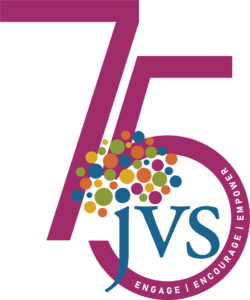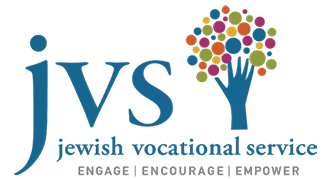At JVS we believe that families should be supported as they enter the workforce. Easing this transition will help to keep them employed and out of poverty. Many families rely on programs such as food stamps, child care assistance and healthcare in the early stages of joining, or rejoining, the workforce.
Issue 1: Provide supports to help families transition from public assistance; one such way is to reduce the “benefits cliff” that can make work precarious.
At JVS, we help individuals find and maintain employment, with the goal of obtaining self-sufficiency. For clients who access public supports, they often experience an abrupt loss of eligibility for safety net programs, known as the “benefits cliff” or “cliff effect.” The loss of housing, child care or health insurance could leave a family in worse condition than when they weren’t working, making it more difficult for individuals and families to achieve stability. For example, to access the Child Care Subisdy program, which assists with payments for child care in Missouri, parents/guardians must be below 138% of the Federal Poverty Level. A single mom of two children would lose financial support to care for her young children if she began earning more than $28,180 annually. See Federal Income Poverty guidelines here. The low threshold for obtaining benefits increases the risk of families being unable to afford care and maintain work.
JVS supports the introduction and passage of legislation to increase the eligibility threshold and roll off period to prevent people from abruptly losing their child care, housing, food stamps or health insurance benefits as they enter or advance in the workplace.
For Additional Information, check out the following resources:
The Net Benefit (Missouri Foundation for Health)
#TheNetBenefit
When a Raise Means Losing Ground for Low-Income Families (PBS)
Missouri Budget Project
Issue 2: Ensure that health levy funds support safety-net health care
Our work relies on a strong health care system for all, including those who are uninsured or underinsured. The Kansas City Missouri health levy, which consists of approximately $50 million from property taxes and service charges, supports Truman Medical Centers, safety net clinics and ambulance services. Although JVS does not receive funding from the health levy, we do provide services that complement health care, including case management, health education, and medical interpretation. JVS depends on the specific investments health levy-supported providers have made to adjust their approaches, fill system gaps, and respond to emerging needs in order to provide health care that is culturally-competent, linguistically-accessible, and trauma-informed.
Health levy funding has failed to keep pace with inflation—let alone the rising cost of health care. The city’s overall proposed funding for the health care providers receiving health levy funds was the same in 2015 as 2003, despite voters’ endorsement of the levy increase. JVS advocates for an increase in health levy funds and distribution to safety net clinics.
For Additional Information, check out the following resources:
Kansas City, MO Health Levy (Health Care Foundation)
Health Levy (KCUR 89.3)


